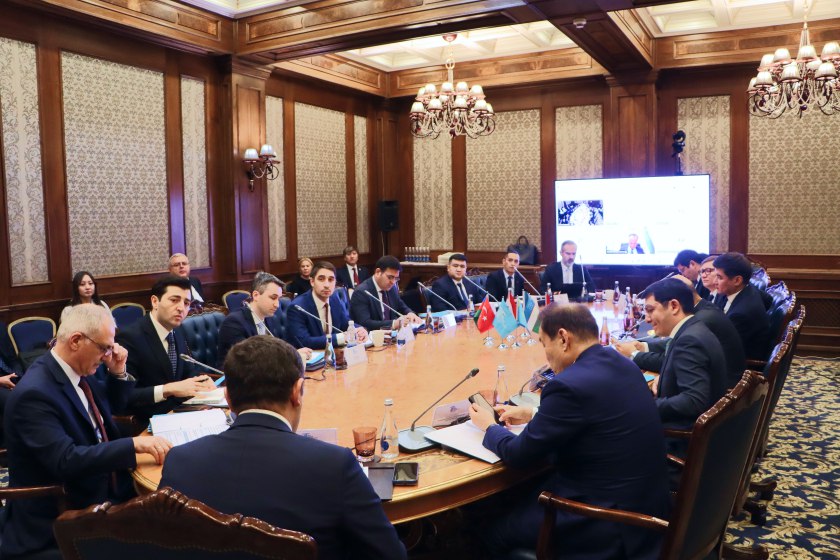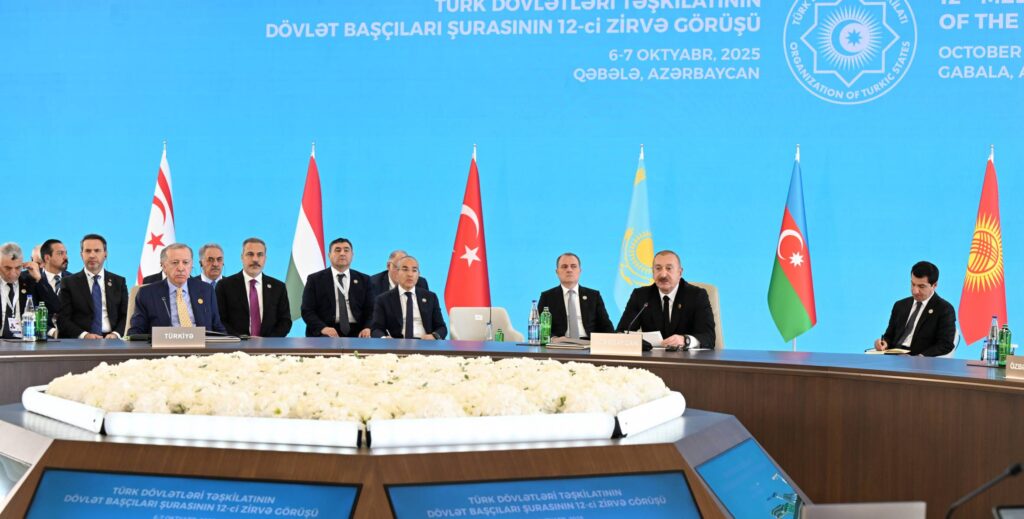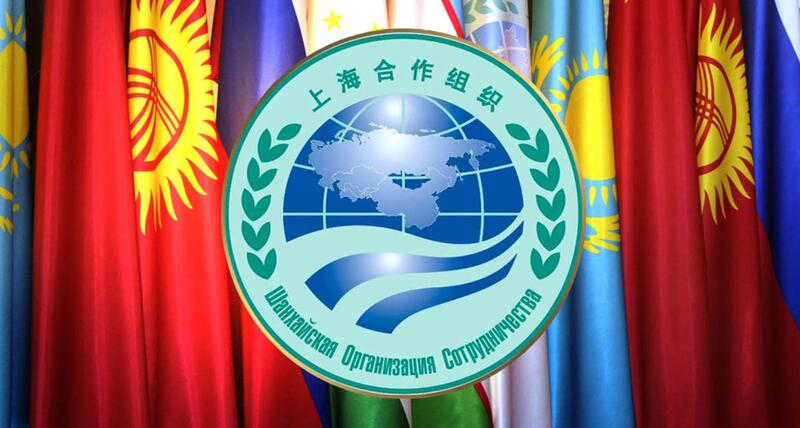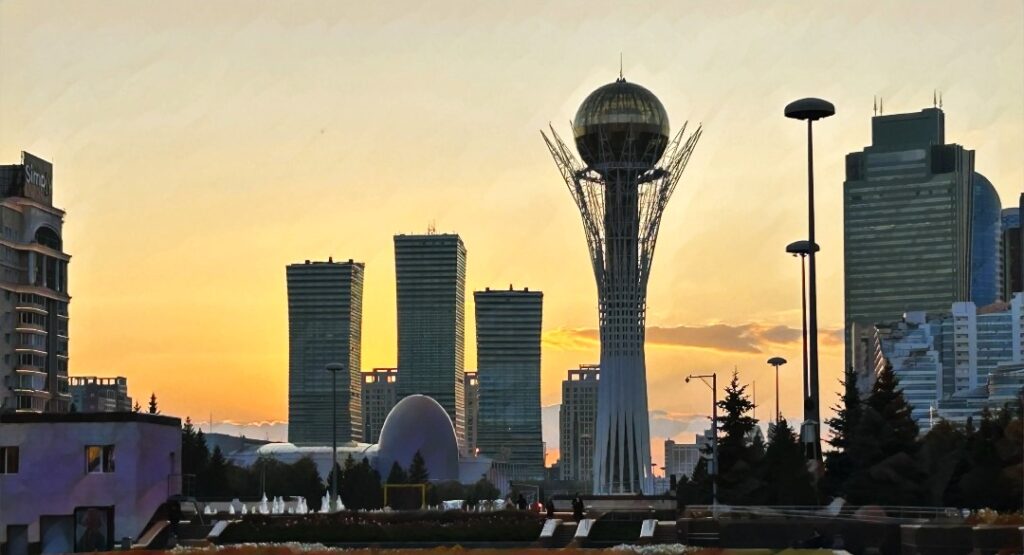The informal OTS summit in Shusha, hosted at the invitation of Ilham Aliyev, centered on the theme of “Building a Sustainable Future through Transportation, Connectivity and Climate Action.” Attendees included Presidents Kassym-Jomart Tokayev of Kazakhstan, Sadyr Japarov of Kyrgyzstan, Shavkat Mirziyoyev of Uzbekistan, Ersin Tatar of the Turkish Republic of Northern Cyprus, Prime Minister Viktor Orban of Hungary, and OTS Secretary General Kubanychbek Omuraliev. In place of Erdoğan, who was in Germany supporting the Turkish national soccer team ahead of a crucial Euro 2024 quarter-final against the Netherlands, Vice President Cevdet Yılmaz attended. Turkmen President Serdar Berdimuhamedov was also absent due to hosting UN Secretary-General António Guterres in Ashgabat.
Notably, the Shusha summit occurred just two days after the meeting of SCO leaders in Astana, which drew an exceptional amount of attention from international observers due to the participation of the Russian and Chinese leaders.
The intrigue surrounding the SCO summit was linked to its closed session, attended only by the Shanghai Ten. At the summit, only the speech delivered by Tokayev was made available to the press. Speeches made in the subsequent SCO+ format sessions were made public, wherein Russian President Vladimir Putin and Chinese President Xi Jinping underscored the need for a multi-polar world, suggesting that the SCO members had discussed shifting away from Western cooperation towards the Global South.
At the Shusha summit Aliyev highlighted Azerbaijan’s commitment to strengthening ties within the Turkic world, emphasizing the importance of the political, economic, and military consolidation of Turkic States as a global power center. Aliyev stated that Azerbaijan has consistently sought to unite the Turkic world and enhance its influence on the global stage, stressing that the OTS should seek to emerge as a significant global power.
“We cover a large geographical space and positive demographic dynamics are observed in the member countries. Our greatest assets are our rich natural resources, modern infrastructure for their delivery, transportation corridors connecting Central Asia and the Caucasus with Mediterranean and Black Sea ports, and our rich and ancient history and culture. The commitment of our people to traditional values and ethnic commonality closely unites our countries. The 21st century should become the century of prosperity of the Turkic world,” the Azerbaijani leader emphasized.
Aliyev also addressed the primary tasks which lie ahead for the OTS, referencing the Astana Declaration of the SCO, which designates Central Asian republics as the organization’s foundation. Leaders of these republics who attended the summit in Shusha, Tokayev, Shavkat Mirziyoyev, and Sadyr Japarov, endorsed Aliyev’s call for the expansion of the East-West transport corridor connecting Central Asia and Eurasia to Europe.
Aliyev further highlighted the Digital Silk Road project, which aims to establish a fiber-optic telecommunication route between Europe and Asia via the Caspian Sea through Azerbaijan.
Furthermore, when the President of Kazakhstan delivered his speech, he stressed the significance of the Trans-Caspian International Transportation Route.
“The potential of the Trans-Caspian International Transport Route should be fully utilized. Today, the volume of container transportation along this corridor has doubled compared to 2023. We have launched a multimodal digital platform, Digital Trade Corridor, to reduce cargo transit time. The Azerbaijani side is closely cooperating with us in this direction,” Tokayev stated.
Aliyev also took the opportunity to highlight the fact that Azerbaijan will host COP29 this year. “We regard the chairmanship of COP29 and the hosting of this event in Baku as a clear example of the great confidence the international community has in our country,” he stated. “About 200 countries unanimously supported our candidacy. Using the experience gained during its four-year chairmanship of the Non-Aligned Movement, Azerbaijan will strive to strengthen solidarity and achieve consensus between developed and developing countries.”
The Karabakh Declaration, adopted by participants of the informal summit in Shusha, further proves that Central Asia and the Organization of Turkic States remain committed to regional cooperation and maintaining good relations with Europe.
In fact, one of the clauses within the declaration explicitly states the aspirations of the OTS and Central Asia for global cooperation and openness: “Strengthening regional ties and economic integration between the member states through the Trans-Caspian International East-West Corridor (Middle Corridor) connecting Europe, Turkey, the South Caucasus, Central Asia, and China… for sustainable development, economic prosperity, and international trade by increasing trade and attracting investment in the infrastructure of ports and railroads.”
In essence, whilst the Western media may choose to focus on Putin and Xi, the influence of China and Russia on the rest of the SCO members is overly exaggerated, and any talk of Central Asia isolating itself from the West is unfounded.









